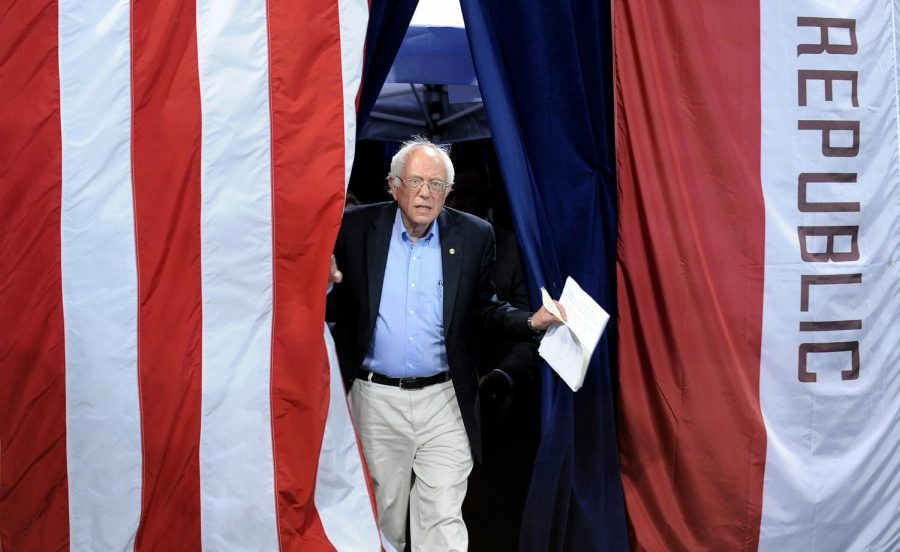Win or lose, Bernie Sanders has made an impact on politics
May 24, 2016
Bernie Sanders, the democratic Senator of Vermont, has been described by major news sources since the start of his presidential campaign as an “underdog” and “un-electable.”
However, there is no solid evidence to prove this, since Sanders has been doing incredibly well, winning states left and right, and showing Clinton twenty times that she is not the guaranteed candidate with an adoring, united party boosting her up on its shoulders like she thought she would be.
Clinton is no doubt flailing in dismay that this far into the race, she has failed to do what Trump on the Republican side has done: squeeze out the opponent.
This election has been unlike many others in that the American people have been showing up in droves to vote for candidates who aren’t part of the establishment. Though Bernie Sanders and Donald Trump could not be more different, the two do have one thing in common: they’ve really opened the eyes of Americans to the crookedness of the current American political system.
At this point in the race, it’s highly unlikely—almost impossible—that Sanders will end up winning the Democratic nomination. However, he has mobilized voters and stirred the pot by exposing the unfairness of the current delegate system we have in place. People are angry at the leaders of their own parties, and are rallying behind the non-established candidates in numbers probably not seen since Ross Perot ran as an independent in 1992.
And it’s easy to see why.
For example, you may remember Sanders’ eight-state winning streak in April, during which he blew Hillary Clinton out of the water time and time again, yet for each state he won, he earned the same number of delegates as she did or fewer.
For instance, he won Wyoming with 56% of the vote, yet both he and Clinton won seven delegates each–a tie. Thus, while Bernie actually earns his votes because, well, people are voting for him, Clinton gets to scoot by with superdelegate pledges before the race for a given state has actually begun.
It’s nonsense, and the people are realizing it. Although Sanders has faced the brunt of this system, the loud candidate on the red side has also been frustrated by this. In Louisiana, for instance, Trump beat then-candidate Ted Cruz by four percent of the vote, yet tied with Cruz in number of delegates.
He had a lot to say about it, tweeting afterward “Just to show you how unfair Republican primary politics can be, I won the state of Louisiana and got less [sic] delegates than Cruz—lawsuit coming.” He ended up not needing to worry, as Cruz later dropped out of the race, but he and his supporters were just as upset as Bernie’s.
Trump even gave a nod to Sanders, saying I see all of these victories that I have and all of these victories that he’s got, and then you look at the establishment […] it’s a corrupt deal going on in this country, and it’s not good. It’s not fair to you people.” He went on to say that the system “makes it impossible for a guy that wins to win. It’s a crooked system.”
Besides the unfairness of the delegate system, Sanders has also drawn attention to caucus corruption, as voters, many of whom showed up to vote for him, were turned away at the polls or had to wait in lines so long that they missed their chance to vote.
In New York, thousands of registered democrats ready to vote for Sanders in his birthplace of Brooklyn “were inexplicably stricken from voter rolls and were unable to vote in [the] primary,” according to U.S. News. In Florida, people were turned away from the polls because polling places had run out of democratic ballots, according to CNN.
I hate to be a paranoid conspiracy theorist, but it’s all too possible that behind the scenes, there’s something fishy going on to ensure the established candidate a path to the White House.
So win or lose (and it’s probably lose), Senator Sanders has done the voters a service by pointing out some of the sinister issues America has with its political system. Hopefully, something can be done so this country can actually be by the people, for the people again.
The opinions expressed in Keating’s column do not necessarily reflect those of The Daily Barometer staff.






















































































































